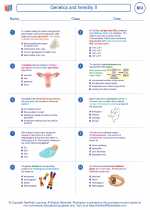Understanding Hydraulics
Hydraulics is a branch of science and engineering that focuses on the mechanical properties of liquids, particularly water. It involves the study of the behavior of fluids in motion and at rest, and their applications in various engineering systems.
Key Concepts in Hydraulics
- Fluid Mechanics: Understanding the behavior of fluids, including their properties, flow patterns, and interactions with solid boundaries.
- Hydrostatics: The study of fluids at rest and the pressure exerted by a fluid at equilibrium.
- Hydrodynamics: The study of fluids in motion, including the principles of fluid flow, viscosity, turbulence, and boundary layers.
- Fluid Power: The use of fluids to generate, control, and transmit power, often in hydraulic machinery and systems.
Applications of Hydraulics
- Hydraulic Systems: Power transmission and control systems that use pressurized fluids to perform work, such as in industrial machinery, construction equipment, and aircraft flight control systems.
- Hydraulic Engineering: Design and construction of structures and systems that utilize fluid properties, including dams, canals, pipelines, and hydraulic machinery.
- Hydraulic Fracturing: The process of injecting pressurized fluids into rock formations to extract oil and natural gas from underground reservoirs.
- Hydraulic Control Systems: Use of hydraulic principles in automated control systems, such as in automotive brakes, steering, and suspension systems.
Principles of Hydraulics
- Pascal's Law: The principle that states that a change in pressure applied to an enclosed fluid is transmitted undiminished to all portions of the fluid and to the walls of its container.
- Archimedes' Principle: The buoyant force exerted on an object immersed in a fluid is equal to the weight of the fluid that the object displaces.
- Bernoulli's Principle: The principle that states that an increase in the speed of a fluid occurs simultaneously with a decrease in pressure or a decrease in the fluid's potential energy.
Study Tips for Hydraulics
- Understanding Fluid Properties: Familiarize yourself with the unique properties of fluids, including density, viscosity, and compressibility.
- Practical Applications: Explore real-world applications of hydraulics in engineering, technology, and environmental science to understand its significance.
- Problem-Solving Skills: Practice solving problems related to fluid mechanics, hydrostatics, and hydrodynamics to strengthen your understanding of key concepts.
- Hands-On Experience: If possible, engage in hands-on experiments or projects that involve hydraulic systems to gain practical insights into their functioning.
◂Biology Worksheets and Study Guides High School. Genetics and heredity II
Worksheet/Answer key Genetics and heredity II
Genetics and heredity II  Worksheet/Answer key
Worksheet/Answer key Genetics and heredity II
Genetics and heredity II  Worksheet/Answer key
Worksheet/Answer key Genetics and heredity II
Genetics and heredity II  Vocabulary/Answer key
Vocabulary/Answer key Genetics and heredity II
Genetics and heredity II  Vocabulary/Answer key
Vocabulary/Answer key Genetics and heredity II
Genetics and heredity II  Vocabulary/Answer key
Vocabulary/Answer key Genetics and heredity II
Genetics and heredity II  Vocabulary/Answer key
Vocabulary/Answer key Genetics and heredity II
Genetics and heredity II  Vocabulary/Answer key
Vocabulary/Answer key Genetics and heredity II
Genetics and heredity II  Vocabulary/Answer key
Vocabulary/Answer key Genetics and heredity II
Genetics and heredity II  Vocabulary/Answer key
Vocabulary/Answer key Genetics and heredity II
Genetics and heredity II 

 Worksheet/Answer key
Worksheet/Answer key
 Worksheet/Answer key
Worksheet/Answer key
 Vocabulary/Answer key
Vocabulary/Answer key
 Vocabulary/Answer key
Vocabulary/Answer key
 Vocabulary/Answer key
Vocabulary/Answer key
 Vocabulary/Answer key
Vocabulary/Answer key
 Vocabulary/Answer key
Vocabulary/Answer key
 Vocabulary/Answer key
Vocabulary/Answer key
 Vocabulary/Answer key
Vocabulary/Answer key

The resources above cover the following skills:
LIFE SCIENCE (NGSS)
Heredity: Inheritance and Variation of Traits
Students who demonstrate understanding can:
Ask questions to clarify relationships about the role of DNA and chromosomes in coding the instructions for characteristic traits passed from parents to offspring.